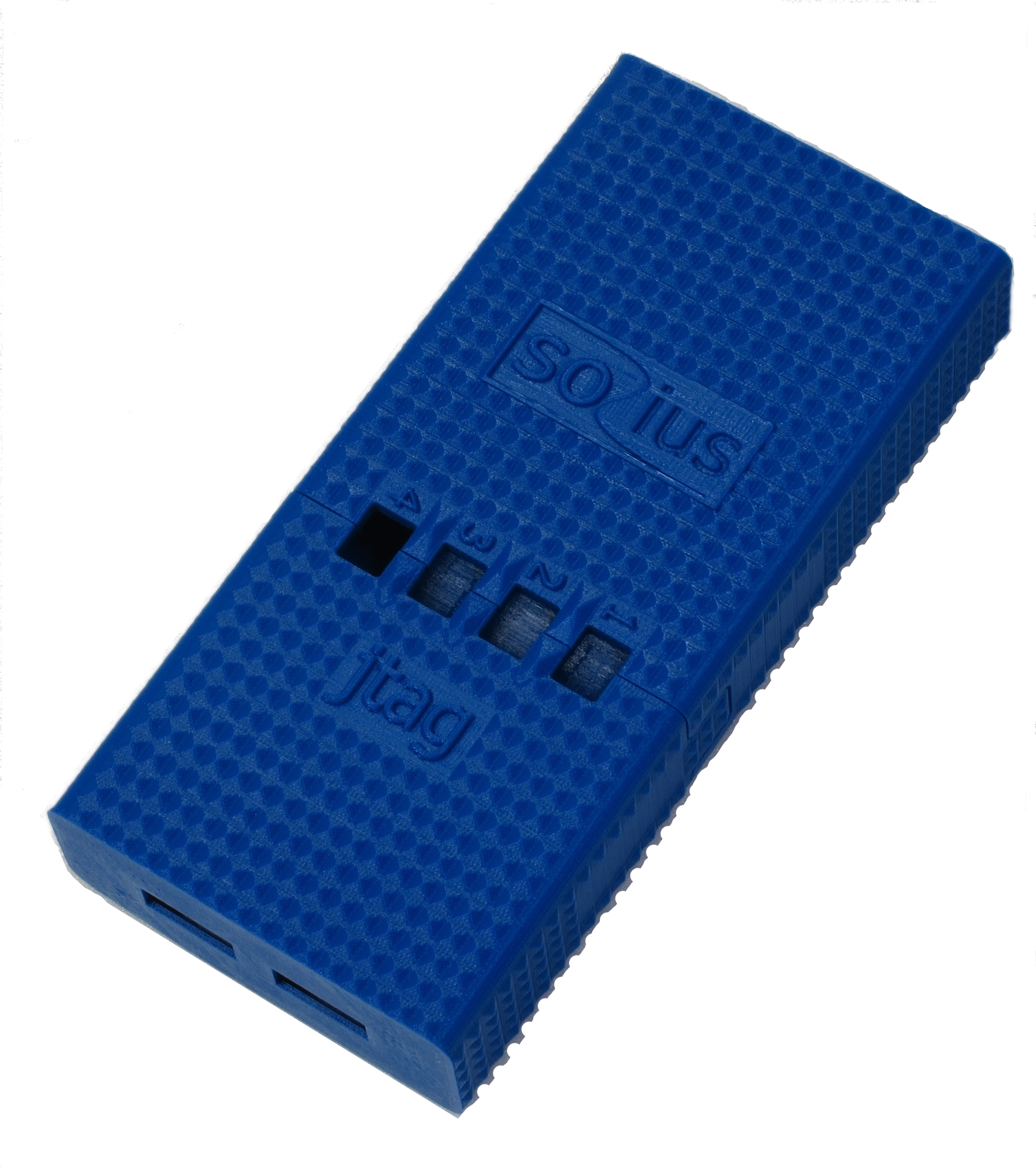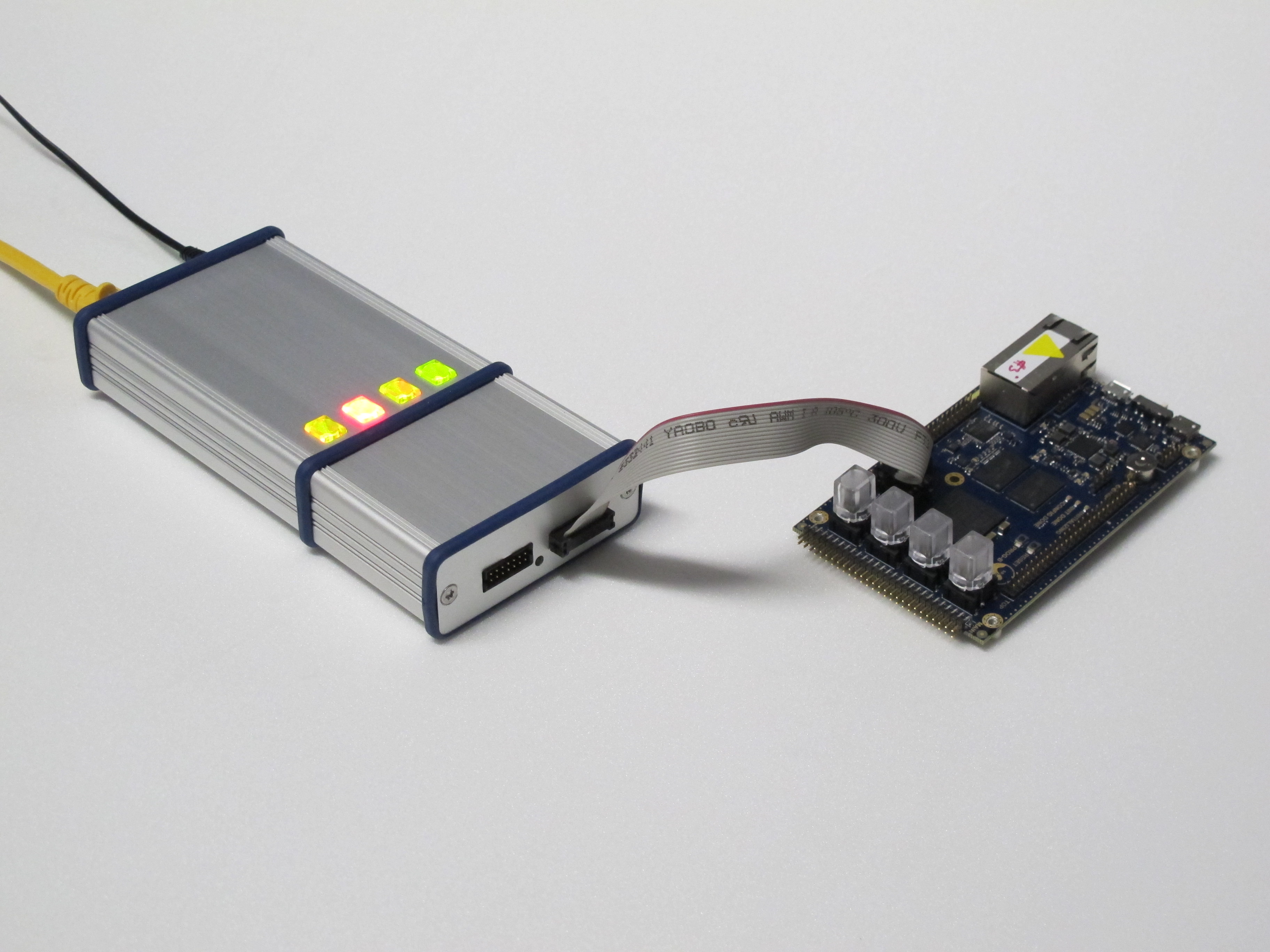sozius |
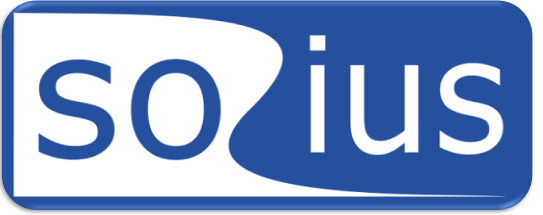
Make it as simple as possible, but not simpler. (Albert Einstein)
A socius development platform is a small, portable electronic device that can easily be powered exter- nal form a USB port, USB charger, Power Over Ethernet or a battery pack. You can easily develop software and or digital elec- tronic for it, because it uses an FPGA with an embedded processors. For many application 90% of the overall design is fixed and only 10% makes the di erences. sozius delivers already a well-designed board should help you to focus on the di erentiation and that can be easily extended to your need. The main system with many interfaces and Linux is already preconfigured and ready for use. It should be easy to carry around for training and teaching. With expansion ports it is easily expandable to make it useful for many different kinds of application.
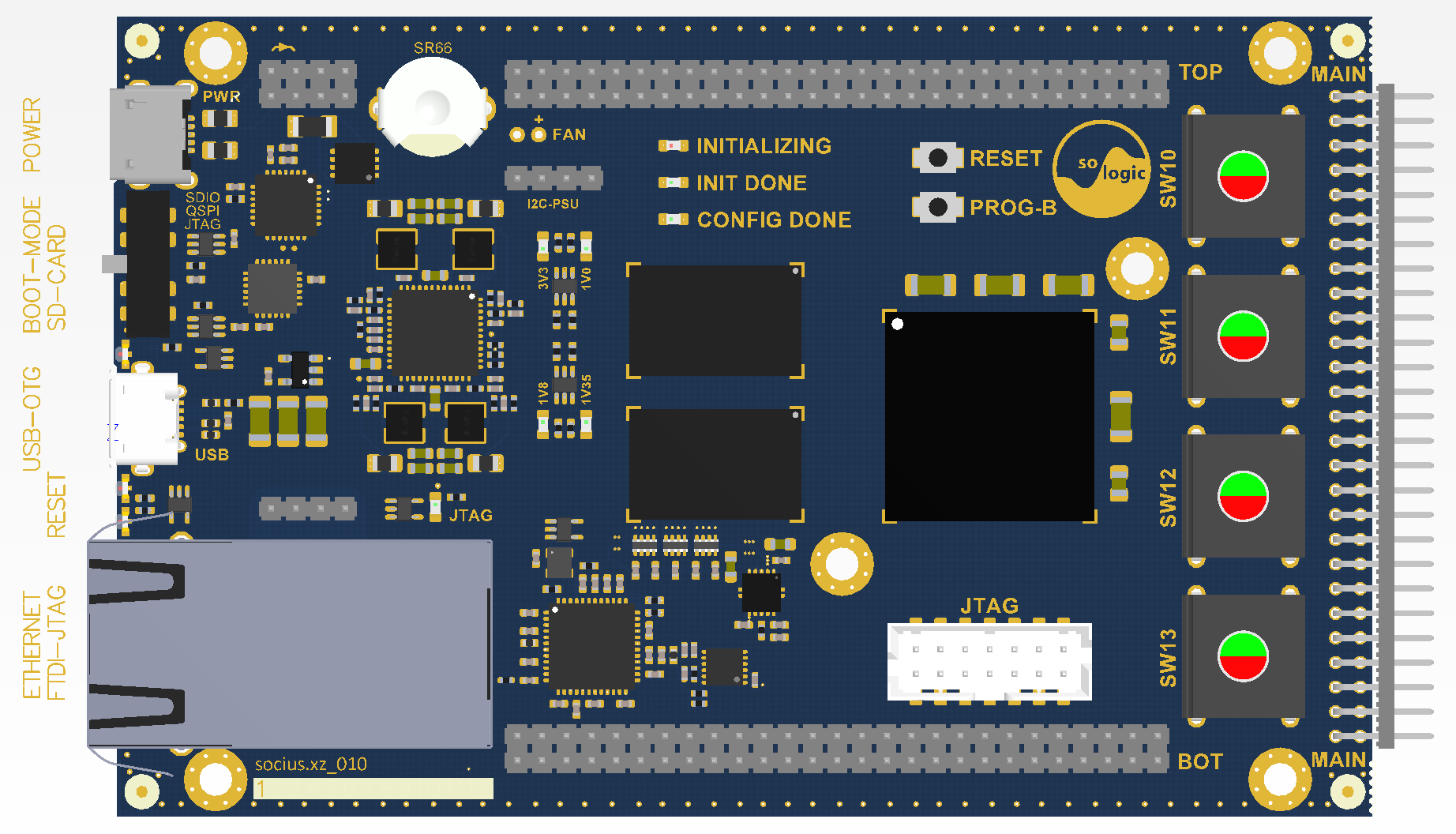
Features
You can select between many different kits that come already with additional modules, firmware and bit-stream. Select a socius kit which is basic system without any sub module, a fixed application like JTAG programmer or develop a sub module by our self You can select between many different kits that come already with additional modules, firmware and bit-stream.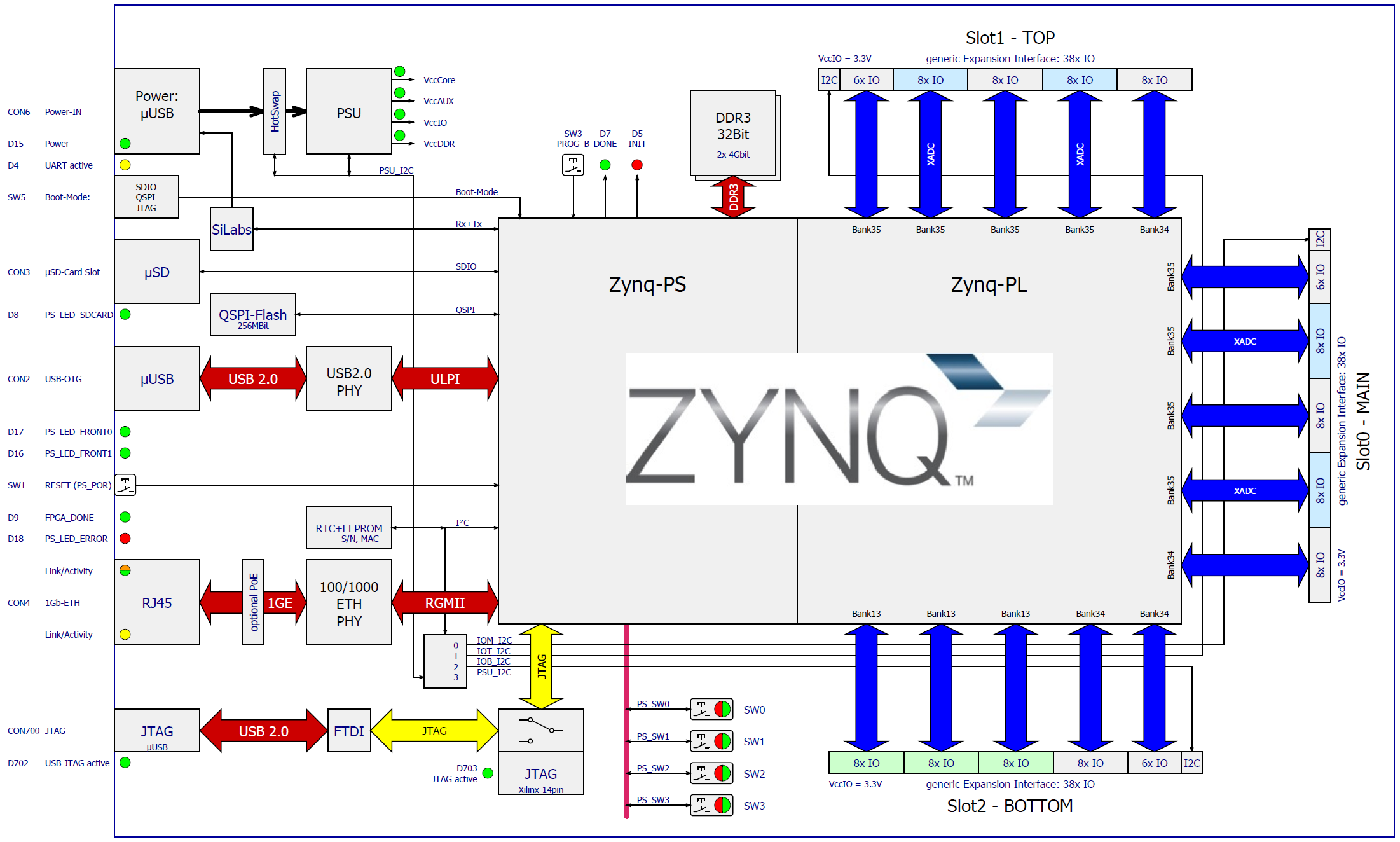
Power Supply
- From microUSB connector, use any USB power supply with 2A maximum
- Power over Ethernet PoE with additional sub module, you need only on cable for data and power
- Battery Supply with 4x1.2V=4.8VNiMH or 2x3.7V=7.4VLiPO
- Hot Swap Controller for measuring the power consumption, current and inout voltage
- Total Power consumption < 10W
- Real Time Clock with Battery
Standard Interfaces
- RJ45 with 1G for remote communication connected to PS
- microUSB USB device/host for local communication to PS
- microUSB Power Supply < 10W for the whole board, optional PoE , combined with debug UART for PS
- microUSB JTAG for programming and debugging (Vivado Analyser and GNU Debugger)
User Interface Hardware
- Standard: 4 x Push Button with Two Colours LEDs
- can be used to select different programs at power up
- One LED for each interface
- UART green
- USB host/device green
- RJ45 two connect transmit two LEDs green and yellow
- JTAG red
- Power Good green
- Done LED for configuration green
- may be rotary switch
- Error LED red
- small Reset button hidden
- micro switch between SD/SPI/JTAG boot
Application Software
- Qt.54 GUI C++ library available on
- Linux, FreeBSD, MacOS X, iOS, Android
- WebServer
- Scripting Interface
- (optional Python WebServer Django)
- should have always the same look and feel
- loads different Software depending on modules connected
- Web Interface to Control and Monitor sozius
- Scripting Support for automation
- remote login ssh
- support for HMI for generating BSP board support packages, libraries and driver
- support SDxx (software defined ) frame works
- SDnet network
- SDaccel acceleration
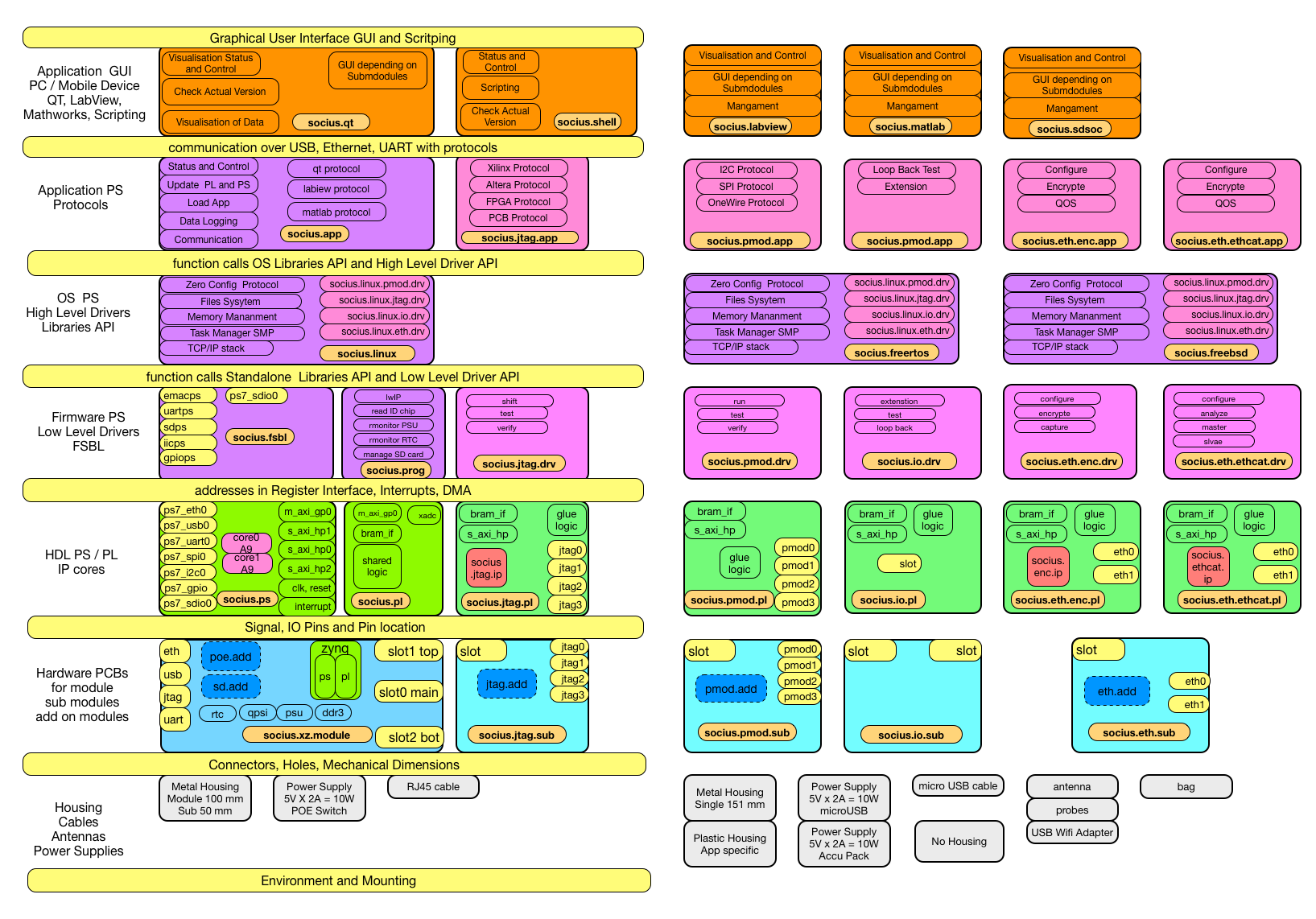
Operating System
- running a minimal Linux on one ARM core
- fast power up, minimum boot time
- low power consumption -> sleep mode
- load modules depending on hardware (connected modules) device tree DTS
- optional FREE RTOS or FreeBSD may be easier for licensing
- Second core can be programmed in C or can be used also for Linux with SMP
- Remote update of FSBL, SSBL (UBOOT), OS, Application, Bitstream (Partial)
Programmable System PS
- embedded Processor ARM Cortex A9 Dual Core
- DDR3 32 bit connect to pS
- QSPI for booting PS and PL
- SD card for booting PS and PL
Interface between PS-PL
- must be different for different use cases
- different driver for Linux
- depending on the amount and
- Register Interface for control
- AXI streaming for DATA
- DMA
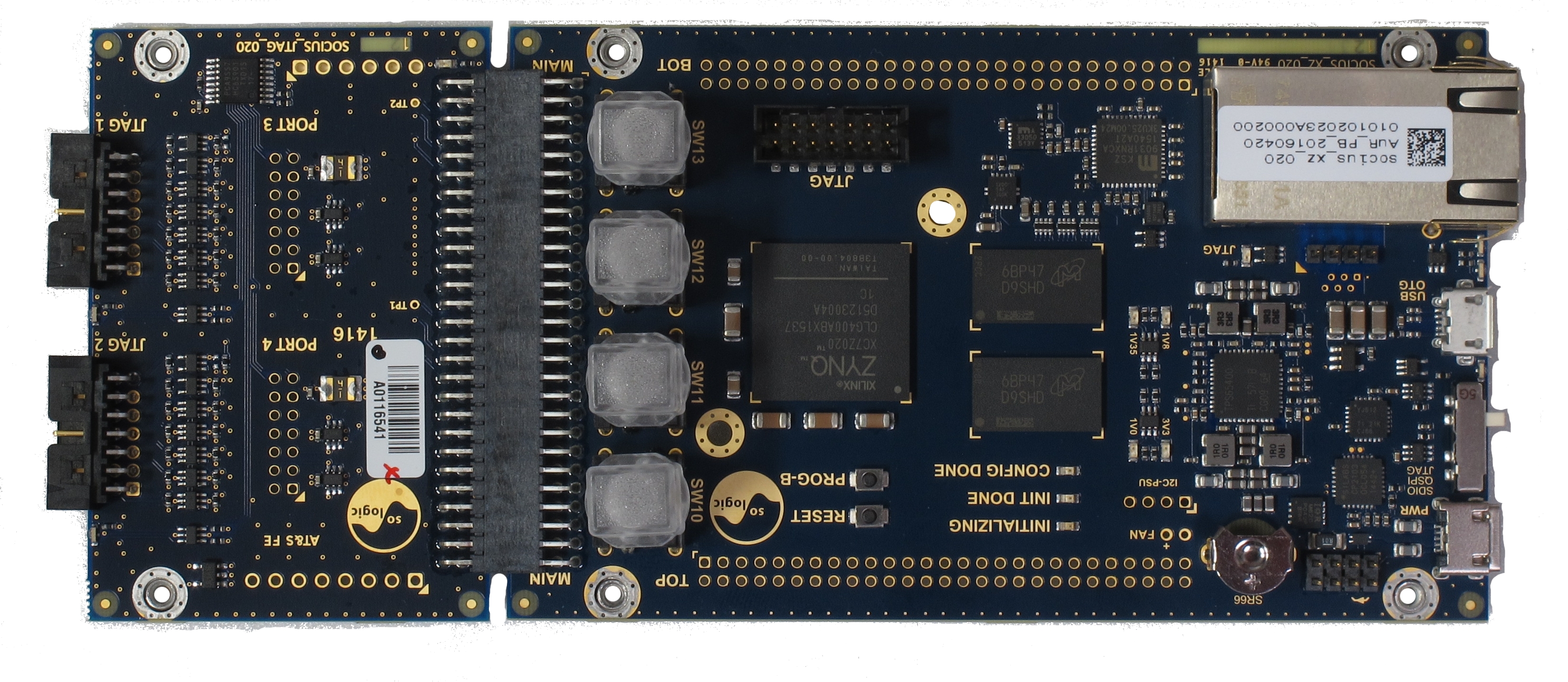
Programmable Logic PL
- connected to 3 expansion slots
- 54 pins
- header 2mm pitch (male)
- 38 User IO pins
- differential pairs, length matched and impedance controlled
- portA for XADC
- portB for communication
- portC can be not used for XC7Z010 (25 pins less)
- portA + portC can be combined to make module on top
- few pins with additional signals
- USB reset
- SD card detect
- LEDs
Housing
Select between different housing option- without housing for development
- with metal housing
- with plastic housing
- or print a housing by yourself with a 3d printer
